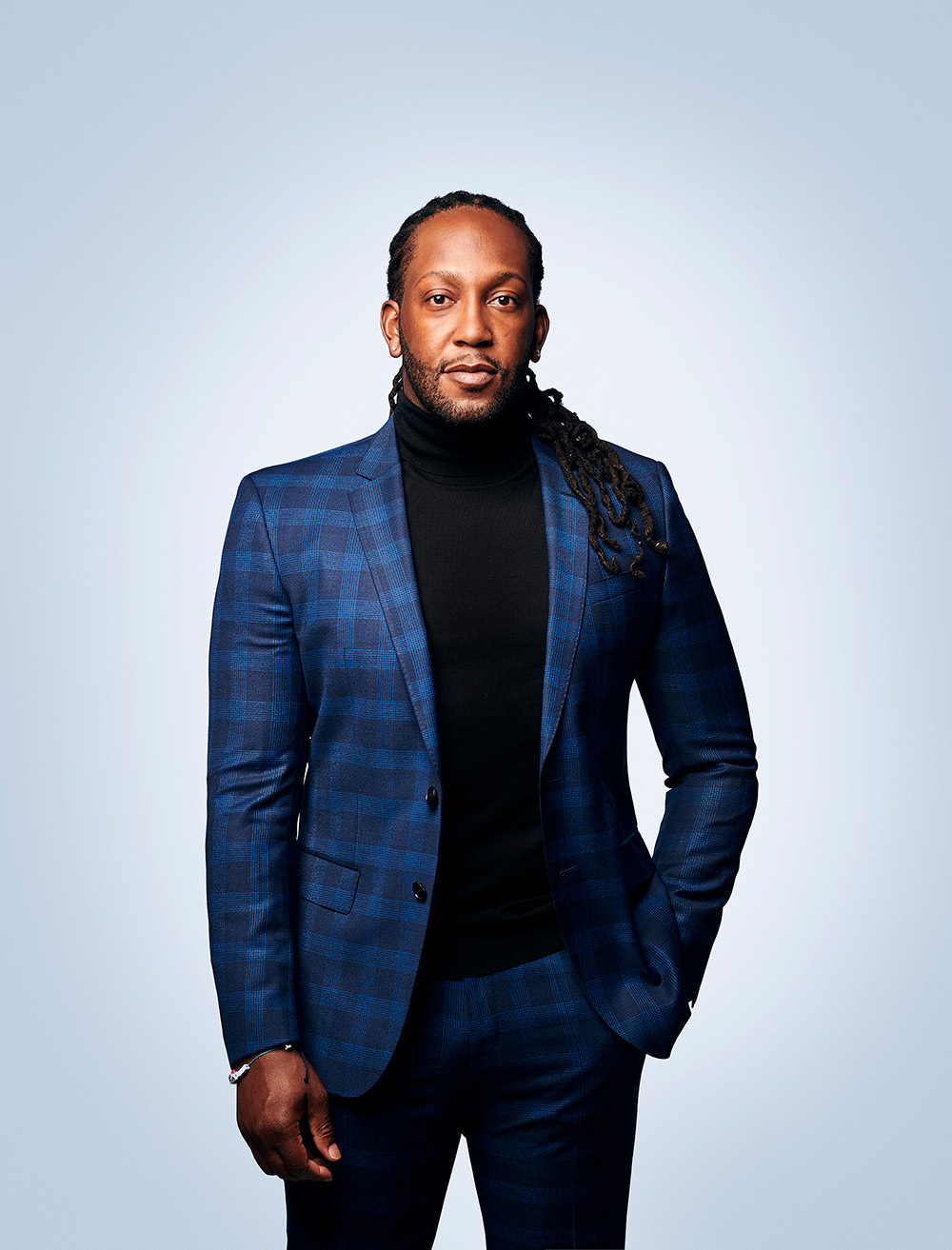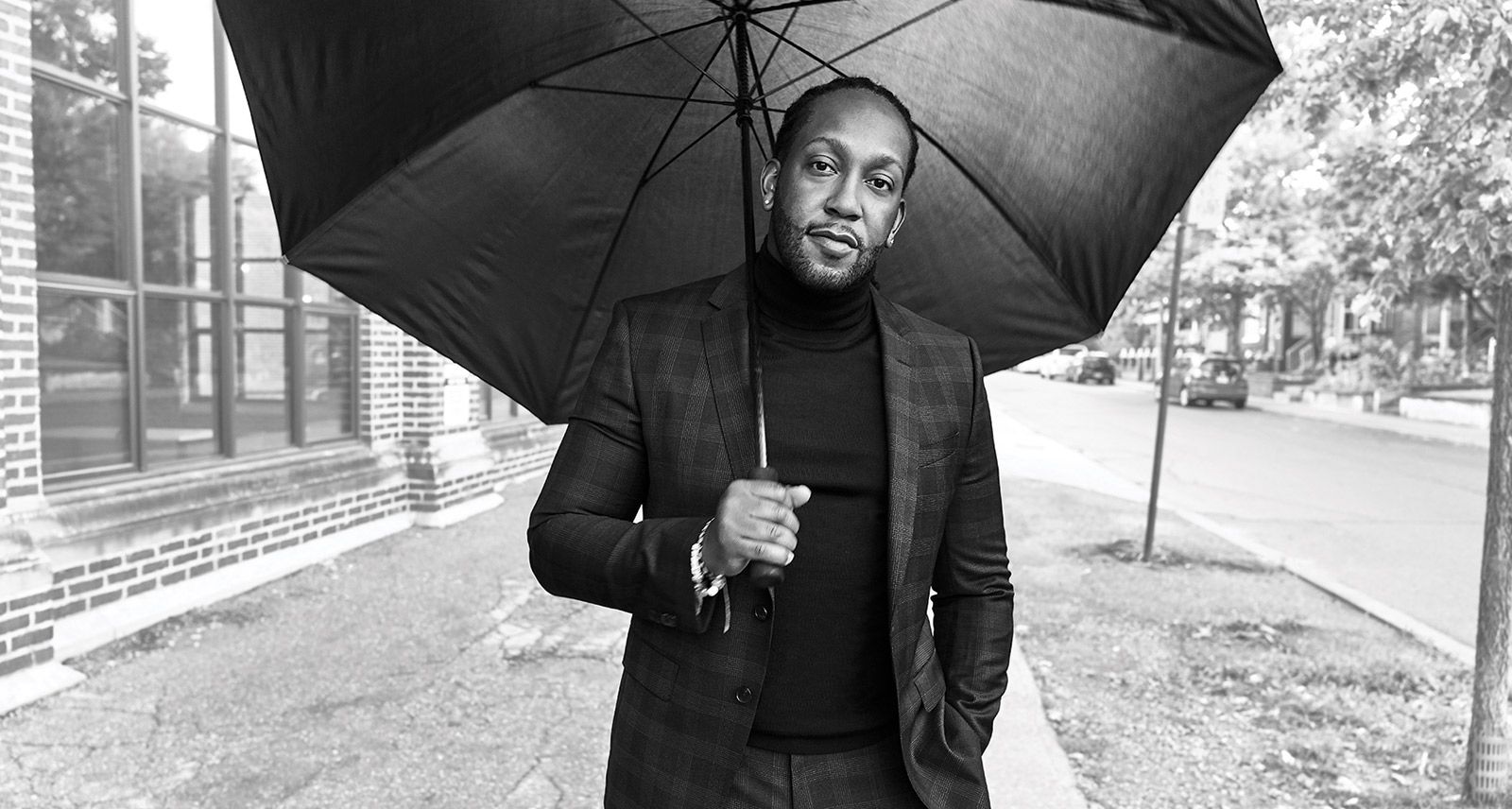Movember Stories: Tyrone Edwards Turns Up the Volume
Tyrone Edwards projects confidence. In fact, he’s built his whole career on standing tall in front of the camera. The Toronto-based broadcaster and entrepreneur is also the co-anchor of CTV’s flagship entertainment program eTalk. But as an advocate for speaking up about what you believe in, he’s also aware of the power of vulnerability. We sat down with him to talk about Movember, mental health, and how men can take better care of their bodies, minds, and souls.
Why Movember? What is it about the cause that resonates with you?
Movember, for me, has always been a space where men finally talk about things they’re going through. I think we need more of those conversations. And also, I’m 39-years-old now, and my grandfather passed away from prostate cancer, so it’s a good reminder to make sure I’m on point and doing the checkups.
Can you tell us about a challenging time in your own life and how you dealt with that?
For the first time in my life, at 39-years-old, I experienced anxiety. I had so many family members and friends who’ve dealt with it, and I’ve been there for them and supported them, but I didn’t actually have personal experience with it until the lockdown this spring. It was the uncertainty. I didn’t have the independence I was used to. I leaned on a close friend, who helped me with my meditation practice over Facetime. I leaned on my faith. And then I started doing a morning routine: it starts with silence, and then some affirmations, some visualizing, breathing and stretching, reading, and then you write it all down.
How do you make sure to prioritize your own mental health right now?
The one thing that quarantine did for a lot of us was humbly slow us down. There are so many different lessons available at that pace. It really exposes you. You’re able to see more, feel more. I have to remind myself of the benefits of using all the different gears, not just high gear.

Why do you think it’s important to stay socially connected right now?
There are a lot of things we learn just from having conversations, which you can’t always achieve in your own head. So it’s important to socialize. And yes, things are different and strange and scary, but as long as we’re here, and we’re healthy, we have to live — with an open mind and open heart.
Why do you think it’s so hard for men to talk about mental health?
The difficulty men have in talking about mental health is so layered. It’s something that I’m still learning myself. But it really comes down to tolerance. If there’s a young girl who’s crying versus a young boy, what do you say to each? And as we get older, there’s even less tolerance for vulnerability.
What are some of the barriers for men to seek treatment for mental health?
One barrier is acknowledgement that you need help or support. When I reflect on my own personal journey, I think there are quite a few times when I could have used support, or professional help, someone to talk to — just even as a release. But I didn’t know how to do that. I didn’t know I should.
You’ve used your platform to speak out against issues like systemic racism. How do large-scale issues like this affect an individual’s mental health?
The bottom line is that it just makes any day that much more difficult. It adds a layer of stress and weight that you have to carry, that you don’t see your counterparts having to carry. I speak from experience when I say you can build up a tolerance, and a threshold for mistreatment. But eventually if you’re constantly having this battle of “I’m not good enough — I am good enough,” you can easily be defeated. A lot of people crumble. I have crumbled. I haven’t been able to win each one of those fights. In terms of mental health, it’s discouraging.
Why do you think speaking up is so important?
Our only responsibility as individuals is to effect change in the spaces we occupy. I want to leave those spaces in a much better setup, more welcoming for someone like me. If we all do our own little contribution, those pieces will come together. We can take this opportunity right now to be a part of possibly one of the most significant moments in history and really move towards equality, and understanding the strength in that.
What does success mean to you? Happiness?
Happiness is the goal. Success is subjective, and it’s going to change from year to year, decade to decade, job to job. It’s constantly redefined. But if I’m not happy, what’s the point? And figuring out what makes you happy is how you find your success.










